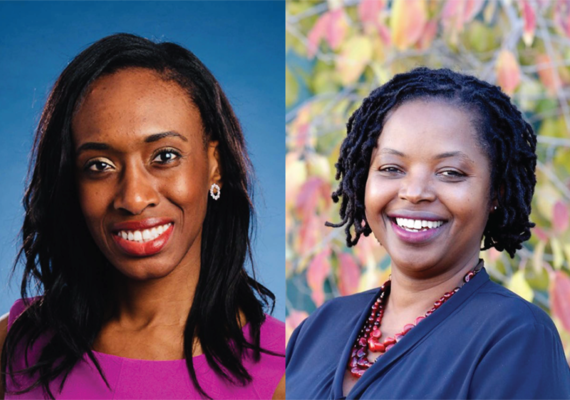Improving the health of racialized groups, children, older adults, or those who live in poverty is an important area of focus for O’Brien Institute researchers.
Addressing health disparities aggravated by the COVID-19 pandemic
Team members at the O’Brien Institute research platform Refugee Health YYC analyzed the impact of one of North America’s largest COVID-19 outbreak sites – at the Cargill meat-processing plant near High River, Alta. – after it infected more than 1,500 mostly immigrants and racialized people. Researchers then expanded the scope to the second and third largest Alberta meat packing plants, JBS Foods and Harmony Beef. This work is helping public health officials prevent future outbreaks.
Refugee Health YYC has also delivered more than 12,000 vaccinations across 13 urban and rural clinics in and around Calgary. This includes four large meat-processing facilities that reached an 85 per cent worker vaccination rate as a result of these efforts, as well as outreach clinics in Calgary’s northeast, which helped the Upper N.E. achieve 100 per-cent first dose uptake. This was Alberta’s first low-barrier, community engaged COVID-19 vaccine clinic and more than 80 per cent of attendees were self-identified minorities in Calgary’s lowest income neighbourhoods that were hit hardest by the pandemic. Researchers also worked with community partners on outreach strategies that address vaccine hesitancy among newcomer communities.

Advancing anti-racism
On a similar vein, O’Brien Institute researchers are addressing anti-Black racism, and promoting health equity in government and health care. Institute member Doreen Ezeife, MD, is using advocacy, and her own practice, to dismantle the barriers to cancer screening that Black Canadians currently face. Meanwhile, work by Régine Uwibereyeho King, PhD, is aiding the development of the City of Calgary’s Anti-Racism Strategic Plan.
*Photo: Doreen Ezeife (left), Régine King (right)
Stable housing for adults with complex health needs
The Institute’s Social and Structural Vulnerabilities (SSV) team worked with Calgary’s Drop-In Centre and the Alex Community Health Centre to develop a stabilization housing model for people living in chronic homelessness. The next step is to share the new model with the Ministry of Community and Social Services, and Alberta Health so that we can better support people in chronic homelessness and with complex health issues.
Managed alcohol program for Indigenous adults
The Social and Structural Vulnerabilities team worked with the Calgary Aboriginal Standing Committee on Housing and Homelessness, and the West Coast Aboriginal Coalition to End Homelessness to implement a harm reduction housing program for Indigenous adults with troubled alcohol use and homelessness histories. Together with community partners and an Elder Advisory Circle they co-created a managed alcohol program to support Indigenous peoples with long histories of homelessness in Calgary and Victoria.
COVID-19 vaccination policy
The Social and Structural Vulnerabilities team developed and implemented a vaccine policy for not-for-profits. To date, 67 Alberta agencies have implemented the policy.
Research informed policy development
• Findings from a capstone project are informing partnership agreements between community organizations in Calgary, government ministries and service sectors. The goal is to strengthen collaboration and communication between these entities, government ministries and service sectors.
• A second project with 30 community organizations focused on how to best work with survivors of COVID-19 with disabilities. The results are evidence-informed policies that are helping survivors get their lives back.

Former Prime Minister Brian Mulroney:
“I want to do whatever I can to increase the reach and effectiveness of the O’Brien Institute, and help it achieve its mission during this public health emergency. We need more organizations like the Institute and we should be supporting them more, because they are having the tough conversations and it is through their work and research that we will get through these hard times.”


